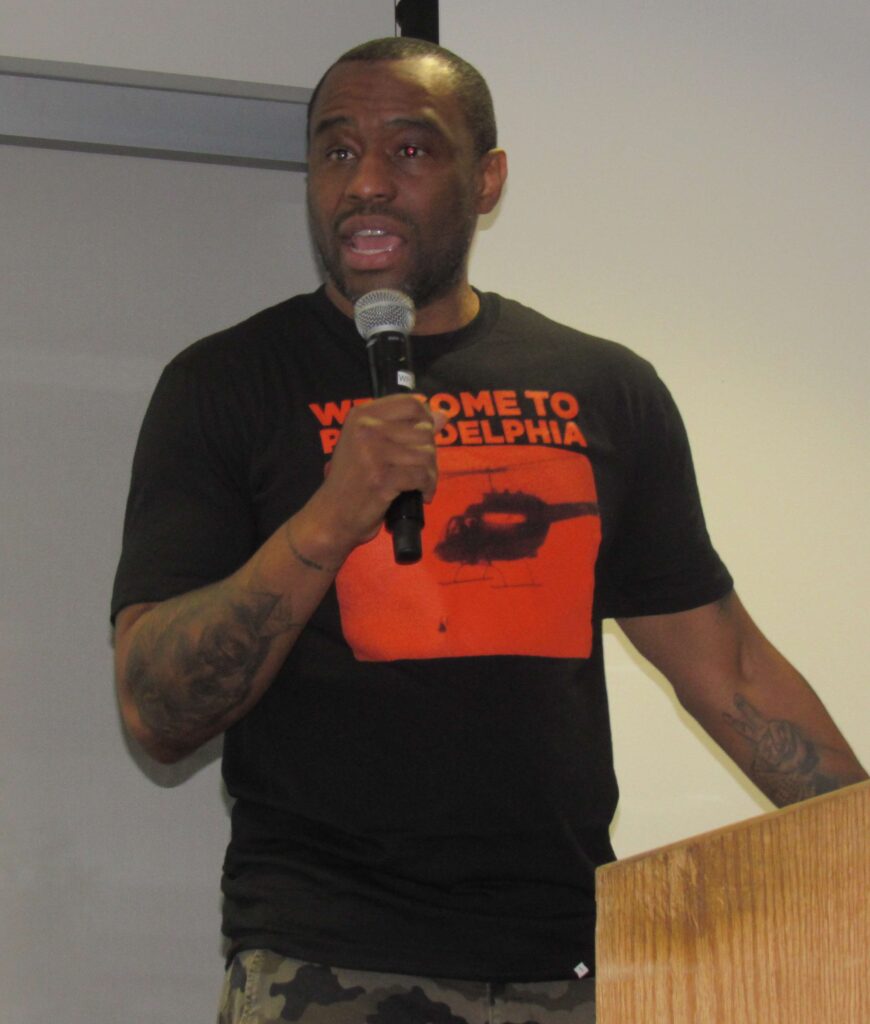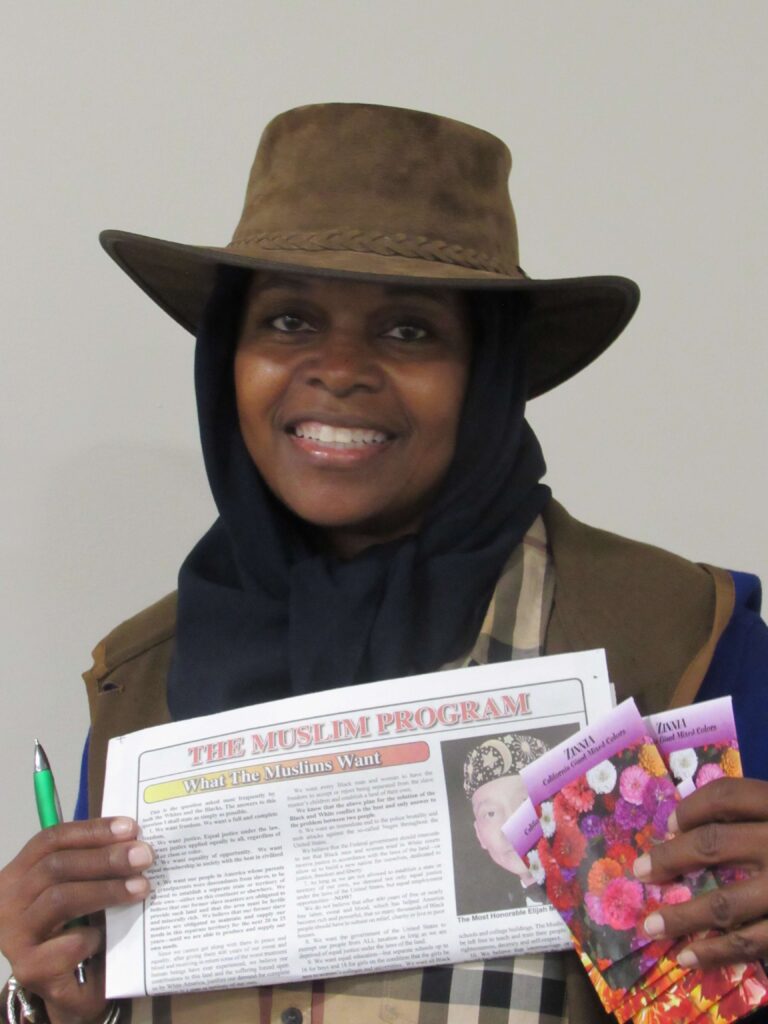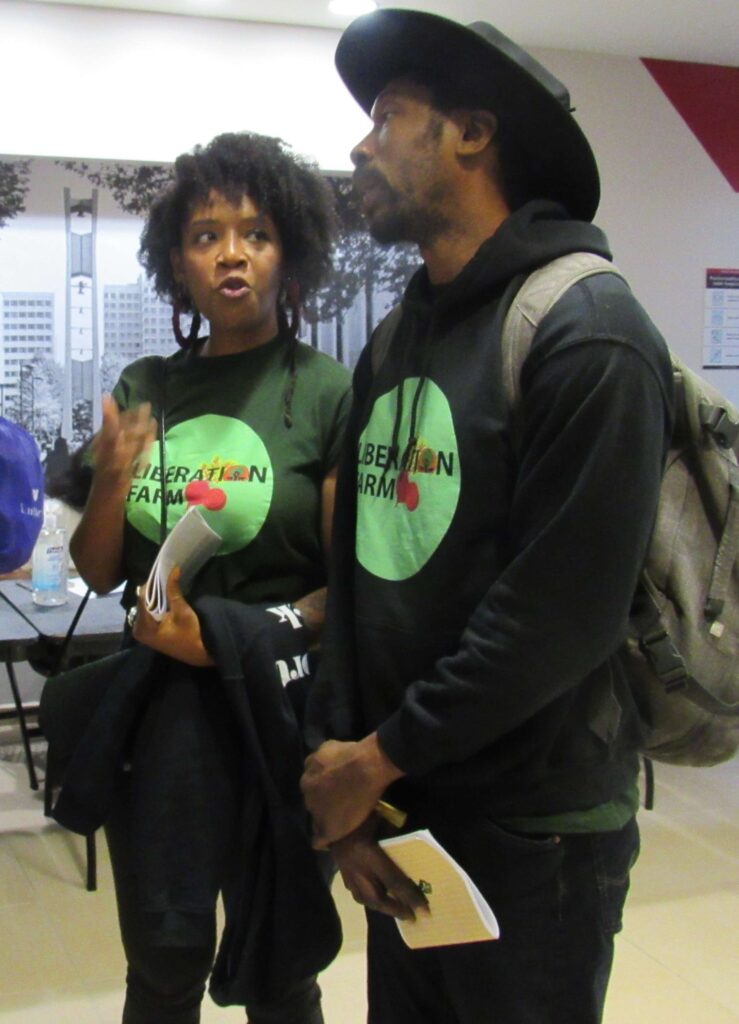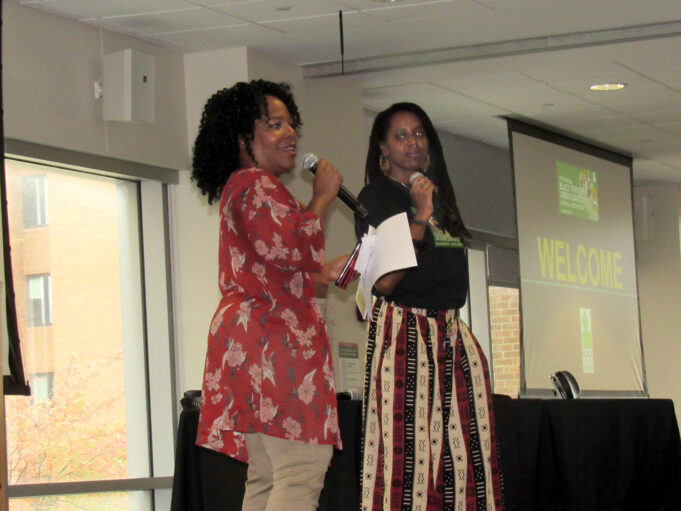PHILADELPHIA—The Black Farmers and Urban Gardeners National Conference (BUGS) brought together a diverse group of Black farmers, urban gardeners, food justice advocates, policymakers, and experts worldwide. Taking place at Temple University, this event served as a platform for sharing innovative ideas, valuable resources, and best practices.
In recent years, the popularity of urban gardening and small-scale farming has skyrocketed. These practices provide fresh produce and sustainable food systems and enable communities to come together and connect with their environment. However, despite the growing interest in agricultural practices, people of color are still underrepresented in the industry.
Black farmers and urban gardeners face significant challenges due to systemic racism, lack of resources, and limited access to land. BUGS was created to address these issues and support the development of the urban farm movement. The 11th annual event, held October 20-22, gathered approximately 1,000 people from as far away as England, Canada, the Caribbean, and across the continental United States.
The African-centered event was far from an ordinary Western-centered agricultural conference. It strongly emphasized self-determination and cooperative economics, fostering an engaging atmosphere prioritizing cultural empowerment and economic collaboration.

BUGS co-founder Karen Washington told The Final Call, “As a co-founder of this organization, I had a visionary dream of hosting a conference by Black people, for Black people. Initially, people doubted my idea, questioning my sanity. However, I found a group of supportive friends who shared my vision, and together, we turned that dream into a reality. Look at where we are now.”
“I cultivated a backyard and some land, embarking on a journey of nurturing growth. Soon after, I became involved in the New York City Community Garden movement, where vacant lots flourished with people cultivating food. This ignited a series of questions and sparked my transformation into an organizer. The rest, as they say, is history,” she continued.
When Ms. Washington first started farming she was disheartened by the lack of representation and diversity at agricultural conferences. “The focus seemed centered on the White experience, and I knew this needed to change.
So, I decided to organize my conference despite being discouraged and told it would fail. People doubted that Black individuals would be interested in farming, but I refused to let negativity deter me. With the support of a group of determined friends, we have become a force to be reckoned with,” Ms. Washington added.
“Our knowledge of agriculture is deeply rooted in our history and culture. We have excelled in creating sustainable systems, developing innovative tools, cultivating nourishing food, and mastering culinary arts. Our contributions to agriculture have often been ignored. Still, we will no longer allow our history to be denied.”
From the beginning it was clear from her vantage point that BUGS is not just a conference but a movement. “I urge everyone to connect and revolutionize the food system directly affecting us. Let our actions speak for our faces and voices. My purpose for this conference is for all to develop a collective determination to transform the food system,” she said.
Melody Muhammad, representing Edith Family Farms, was in attendance. She told The Final Call she was originally from New York and spent her childhood there. She currently resides in the Philadelphia area and has recently acquired land in North Carolina. “One of the aspects I truly appreciate about attending conferences is the chance to connect with diverse individuals and expand my network. Moreover, these events provide invaluable opportunities to explore various topics, including the abundant resources available for urban agriculture,” Ms. Muhammad said.

She stated that she recently heard the Honorable Minister Louis Farrakhan of the Nation of Islam speak about The Muslim Program, which is printed every week on the inside back page of The Final Call newspaper.
“It was fascinating to hear how the Teachings of the Most Honorable Elijah Muhammad from years ago align with the issues we face today. We don’t need to reinvent the wheel; we can refer to The Final Call newspaper and explore the section on ‘What the Muslims Want.’ It’s all there, ready to be implemented. One point that resonated with me was the Messenger’s emphasis on farmland as our primary mission. We must strive to feed ourselves and embrace self-sufficiency. I am truly passionate about making a difference and helping others,” added Ms. Muhammad.
Brother Freedom from Danbury, Connecticut, was attending the BUGS Conference for the first time. “This has been a truly enlightening experience. As someone who’s been a farmer for three years, I believe it’s crucial to find your tribe. This gathering has opened my eyes to the significant number of Black farmers in the country—a fact often overlooked by the media,” he told The Final Call.
“Unlike the ubiquitous portrayal of White farmers, this conference has showcased the incredible diversity within our community. Witnessing the dedication and collective effort toward liberating our communities has been truly inspiring.”
Sister Nadia and Brother Omowale from Liberation Farms in South Kortright, New York, told The Final Call, “Our community and the development of a Black food system hold immense importance in our Black justice work and the realms of food sovereignty and land sovereignty.” Expanding reach and encouraging a radical approach is essential, the couple explained. “We must first understand our history and needs in this space and time to achieve this.
It is crucial to leverage available resources, such as our diverse range of crops, including greens, okra, tomatoes, and herbs. We are dedicated to cultivating approximately 10 to 12 different plant species. Let’s continue our journey towards a more just and sustainable future together.”
A Kentucky farmer, Jim Embry, told The Final Call, the BUGS Conference holds a special place in his heart. “I’ve had the privilege of attending it multiple times, around four or five, to be precise. BUGS is my absolute favorite among the numerous conferences I participate in annually.

Its uniqueness stems from its diverse representation—African American individuals from all corners of the country and the African diaspora gather here. We come together to address the enduring questions surrounding this nation’s origins. These questions revolve around the dark history of stolen land from Indigenous people and the exploitation of African labor,” said Mr. Embry.
“The conference delves into the fundamental contradiction at the heart of this country’s foundation, which continues to manifest in the domains of food and agriculture even today,” he added.
“People from all over the country have gathered here, united by a shared hunger for change, meaning, and connections. The BUGS Conference has been a catalyst, feeding our thirst to be together and connected. This inspiration traces back to my family’s roots in the ‘60s as agrarian intellectuals and activists within liberation movements. Among my various influences, Elijah Muhammad’s farming program resonates, reminding us to feed ourselves and reconnect with the land,” said Mr. Embry.
The conference showcased a variety of engaging workshops, including “Black Herbalism Roots: Preserving Our Legacy,” “Creative Compass Ideas,” and “Feeding your Community While Supporting Regional Farmers.” Moreover, three distinguished keynote speakers, Michael Twitty, Gabriell Eitienne, and Dr. Marc Lamont Hill, delivered impactful addresses.
Ash Richards, the director of Farm Philly, the Philadelphia-based urban agriculture program presented a workshop on “Policy and Planning.” She told The Final Call, “The commitment and dedication of the organizers who have been doing this for 11 years is truly remarkable. Every year, hundreds of Black people from all over the country, including the Caribbean and the UK, gather at BUGS, creating an incredible platform for exchanging thoughts, ideas, and wisdom. It’s a diverse and inclusive space where individuals can share their experiences, expertise in physical farming, and policy development.”
“BUGS is an exceptional opportunity to connect, learn, and contribute to the advancement of our communities. It’s not just an event; it’s a platform that allows us to unite and empower each other through shared experiences and expertise,” she concluded.













